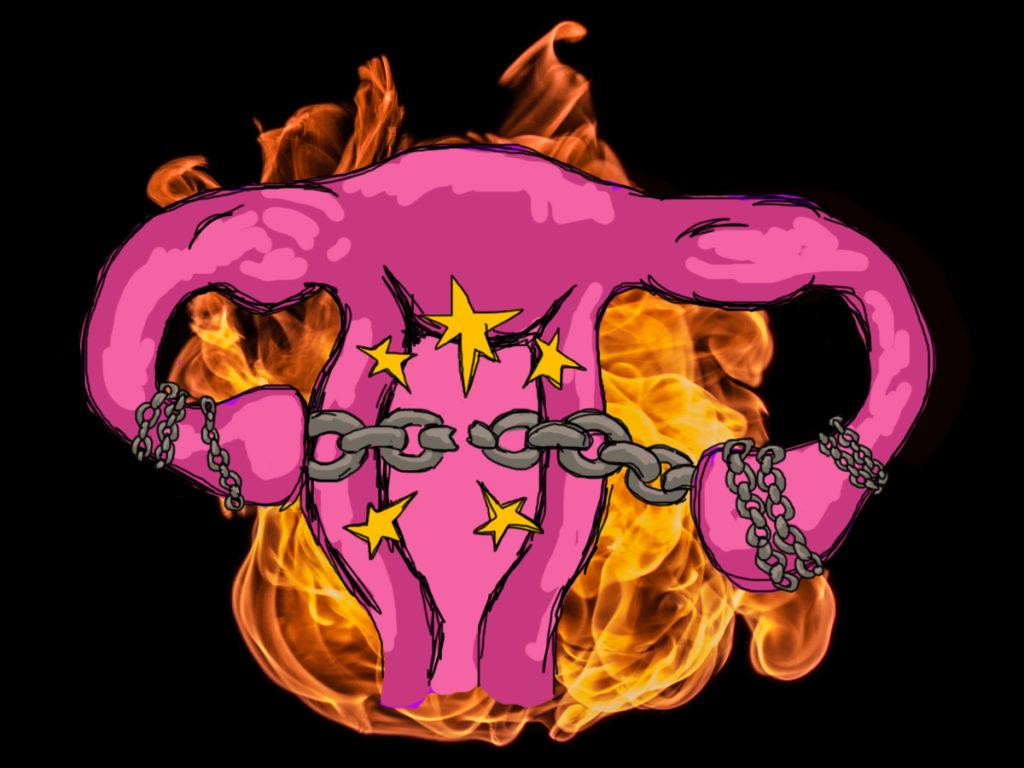Considering that my readership may be more concerned with paying for books and rent than establishing a Domination dungeon, I talk a lot about BDSM in this column. Admittedly, the research I have done on Fifty Shades of Grey probably spearheads my engagement with the experiences expressed in the acronym. But even without my project guiding my focus, I often return to thinking about sex positivity through BDSM because BDSM is a site of sexuality incorporating purposefully heightened/exaggerated/teased-at sensations that come with a long history of vocabulary and theory to expand upon. One of the phrases I have found helpful for sex positivity is Risk-Aware Consensual Kink (RACK). RACK is the expectation that if you engage in BDSM, as a participant, you are aware of the risks involved with your kink, and you and your partner(s) consent to each other and to take those risks.
I usually spend my time talking through the R-A and C parts of the RACK. I think it’s time, however, to isolate that A. People engaging in any power play—whether or not they realize how much power is at stake—may need a little more awareness.
First, not all BDSM practitioners play explicitly with power. To define it again, BDSM stands for Bondage and Discipline, Dominance/submission (D/s), and Sadism/Masochism (S/M). Because you can have bondage without sadism and D/s without discipline, these units of sexual expression do not necessarily overlap. (As a side note, the components connected by a slash are strongly related, but there are instances that only one of the sides are expressed at any given time. While power becomes super interesting when you have two submissive masochists and no Dominants in a room, I will sidestep this interaction in the interest of time and to not overwhelm both you and I.)
Dominance and submission are usually the focus of powerplay discussions because, unsurprisingly, power is heightened when control is transferred between partners. What a person in a Dominant position has control over depends on the needs and desires of the partners involved. For example, in domestic servitude, a submissive person may serve their Dominant by addressing their personal/household needs, performing tasks similar to what might be expected from a butler, domestic worker, or chauffeur. The partners involved in this servitude feel fulfilled by or might be sexually and/or romantically excited by this display.
There are many more scripts through which Dominance and submission are enacted. In my conception of D/s and BDSM, I tend to include a wide range of expressions of sex and/or romance as having elements of BDSM expression. So when you talk dirty with your partner(s) and use language that is considered derogatory in other contexts, I consider that as having elements of S/M. When you like being held down with hands or someone else’s body, I consider that as having elements of bondage. Or when you and your partner(s) roleplay, I consider that D/s. I want to acknowledge that not everyone considers themselves BDSM practitioners, but for the purposes of this article, I conceptualize BDSM as a site of sexual and/or romantic expression of varying levels of extremity that includes situations that involve any of the acronym’s components.
However, with this said, I want to emphasize that the absence of explicit powerplay does not mean there is not Power with a capital P at play. Thinking there is no capital-P Power in the bedroom is the major mistake that some BDSM practitioners and many sex positive advocates make. While we should have the right to regard our sexual and/or romantic lifestyles as private or entirely distinct from our public selves, that does not mean the figurative bedroom is a space outside of time, space, and the politics of structural, historical and cultural oppression.
A lot of this conflict comes out of the historical baggage that goes into producing the scripts that D/s displays follow. Even though these acts depend on consensual displays of power, most still depend on referencing or reenacting on a smaller scale power structures rooted in some awful history.
Let’s go back to some of the examples I gave earlier, starting with domestic servitude. Say we have a heterosexual couple with a woman as the domestic servant who does the household chores in a 1950s dress and classy pearls. It gives me great pause if neither can articulate how their play does not enact the sexism they reproduce in their BDSM. Another issue comes up with the derogatory language example: what is happening with power when racial slurs are used in the bedroom against people with identities those words target? Against people with identities they don’t target? Or how about when the D/s gets more intense and pick up slavery imagery? And you have situations where submissive lifestyle slaves consent to being bought, sold and exchanged through contracts between Dominant masters.
As a sex positive advocate, I want people to find the pleasure they want, and I acknowledge that how they get it differs depending on the individuals involved. I know that the examples I laid out obviously are not always situated within the eras and oppressions they are playing at. Still, I want to challenge people to think more about the expressions of power within the bedroom, in whatever form that may take. There needs to be consideration of what it means to take an aesthetic and transform it to suit your own sexual and/or romantic needs.
Using a script based in dynamics of oppression without serious critical understanding risks creating apolitical, ahistorical sex and/or romance. As said previously, sex and/or romance do not exist in a bubble outside society. The line between an empowering expression of sexuality and an expression that enacts oppression, to me, rests on uncritically using these scripts. I give a lot of credit to awareness because I do believe people make different decisions with more knowledge, even if not every decision avoids enacting problematic dynamics. Maybe knowing that the cat-o-nine-tails was developed to punish sailors in the British Royal Navy might not make a difference in how much it stings on your body, at least the knowledge is there. Because being kinky does not mean being sex positive, sex positivity comes from the work you do beforehand to make sure that when the scene comes up, there are options that allow room for healthier, happier, and (relatively) less oppressive expressions of sexuality.



















Joseph Johnston • Sep 11, 2019 at 1:44 pm
Great blog! Is your theme custom made or did you download it from somewhere? A theme like yours with a few simple adjustements would really make my blog shine. Please let me know where you got your design. Thank you
Ruth Young • Sep 10, 2019 at 8:07 am
Very interesting subject , thankyou for putting up.
Dominic McLean • Sep 8, 2019 at 5:16 pm
I dugg some of you post as I cogitated they were very beneficial invaluable